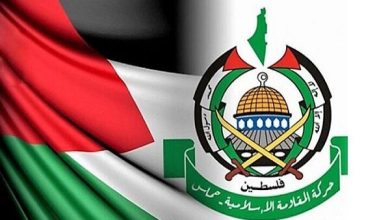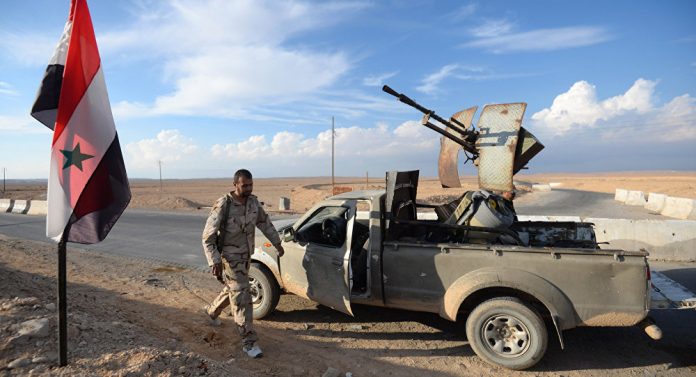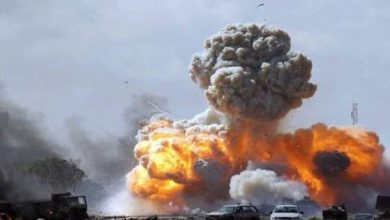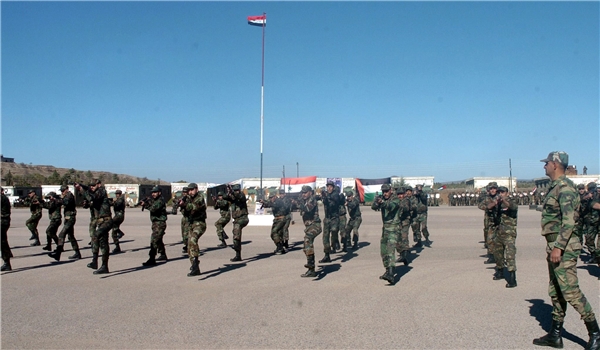MI6, the CIA and Turkey’s Rogue Game in Syria

MI6, the CIA and Turkey’s Rogue Game in Syria US Secretary of State John Kerry and its UN ambassador Samantha Power have been pushing for more assistance to be given to the Syrian rebels. This is despite strong evidence that the Syrian armed opposition are, more than ever, dominated by jihadi fighters similar in their beliefs and methods to Al-Qaeda. The recent attack by rebel forces around Lattakia, Northern Syria, which initially had a measure of success, was led by Chechen and Moroccan jihadists.
America has done its best to keep secret its role in supplying the Syrian armed opposition, operating through proxies and front companies. It is this which makes Seymour Hersh’s article “The Red Line and The Rat Line: Obama, Erdogan and the Syrian rebels” published last week in the London Review of Books, so interesting.
Attention has focused on whether the Syrian jihadi group, Jabhat al-Nusra, aided by Turkish intelligence, could have been behind the sarin gas attacks in Damascus last 21 August, in an attempt to provoke the US into full-scale military intervention to overthrow President Bashar al-Assad. “We now know it was a covert action planned by (Turkish Prime Minister Recep Tayyip) Erdogan’s people to push Obama over the red line,” a former senior US intelligence officer is quoted as saying.
Critics vehemently respond that all the evidence points to the Syrian government launching the chemical attack and that even with Turkish assistance, Jabhat al-Nusra did not have the capacity to use sarin.
A second and little-regarded theme of Hersh’s article is what the CIA called the rat line, the supply chain for the Syrian rebels overseen by the US in covert cooperation with Turkey, Saudi Arabia and Qatar. The information about this comes from a highly classified and hitherto secret annex to the report by the US Senate Intelligence Committee on the attack by Libyan militiamen on the US consulate in Benghazi on 11 September 2012 in which US ambassador Christopher Stevens was killed. The annex deals with an operation in which the CIA, in cooperation with MI6, arranged the dispatch of arms from Mu’ammer Gaddafi’s arsenals to Turkey and then across the 500-mile long Turkish southern frontier with Syria. The annex refers to an agreement reached in early 2012 between Obama and Erdogan with Turkey, Saudi Arabia and Qatar supplying funding. Front companies, purporting to be Australian, were set up, employing former US soldiers who were in charge of obtaining and transporting the weapons. According to Hersh, the MI6 presence enabled the CIA to avoid reporting the operation to Congress, as required by law, since it could be presented as a liaison mission.
The US involvement in the rat line ended unhappily when its consulate was stormed by Libyan militiamen. The US diplomatic presence in Benghazi had been dwarfed by that of the CIA and, when US personnel were airlifted out of the city in the aftermath of the attack, only seven were reportedly from the State Department and 23 were CIA officers. The disaster in Benghazi, which soon ballooned into a political battle between Republicans and Democrats in Washington, severely loosened US control of what arms were going to which rebel movements in Syria.
This happened at the moment when Assad’s forces were starting to gain the upper hand and Al-Qaeda-type groups were becoming the cutting edge of the rebel military.
The failure of the rebels to win in 2012 left their foreign backers with a problem. At the time of the fall of Gaddafi they had all become over-confident, demanding the removal of Assad when he still held all Syria’s 14 provincial capitals. “They were too far up the tree to get down,” according to one observer. To accept anything other than the departure of Assad would have looked like a humiliating defeat.
Saudi Arabia and Qatar went on supplying money while Sunni states turned a blind eye to the recruitment of jihadist and to preachers stirring up sectarian hatred against the Shiite. But for Turkey the situation was worse. Efforts to project its power were faltering and all its chosen proxies – from Egypt to Iraq – were in trouble. It was evident that Al-Qaeda-type fighters, including Jabhat al-Nusra, the Islamic State of Iraq and the Levant (ISIL) and Ahrar al-Sham were highly dependent on Turkish border crossings for supplies, recruits and the ability to reach safety. The heaviest intra-rebel battles were for control of these crossings. Turkey’s military intelligence, MIT, and the paramilitary Gendarmerie played a growing role in directing and training jihadist and Jabhat al-Nusra in particular.
The Hersh article alleges that the MIT went further and instructed Jabhat al-Nusra on how to stage a sarin gas attack in Damascus that would cross Obama’s red line and lead to the US launching an all-out air attack. Vehement arguments rage over whether this happened. That a senior US intelligence officer is quoted by America’s leading investigative journalist as believing that it did, is already damaging Turkey.
Part of the US intelligence community is deeply suspicious of Erdogan’s actions in Syria. It may also be starting to strike home in the US and Europe that aid to the armed rebellion in Syria means destabilizing Iraq. When ISIL brings suicide bombers from across the Turkish border into Syria it can as easily direct them to Baghdad as Aleppo.
The Pentagon is much more cautious than the State Department about the risks of putting greater military pressure on Assad, seeing it as the first step in a military entanglement along the lines of Iraq and Afghanistan. The chairman of the Joint Chiefs of Staff, General Martin Dempsey, and Defense Secretary Chuck Hagel are the main opponents of a greater US military role. Both sides in the US have agreed to a program under which 600 Syrian rebels would be trained every month and jihadists would be weeded out. A problem here is that the secular moderate faction of committed Syrian opposition fighters does not really exist. As always, there is a dispute over what weapons should be supplied, with the rebels, Saudis and Qataris insisting that portable anti-aircraft missiles would make all the difference. This is largely fantasy, the main problem being that the rebel military forces are fragmented into hundreds of war bands.
It is curious that the US military has been so much quicker to learn the lessons of Iraq, Afghanistan and Libya than civilians like Kerry and Power. The killing of Ambassador Stevens shows what happens when the US gets even peripherally involved in a violent, messy crisis like Syria where it does not control many of the players or much of the field.
Meanwhile, a telling argument against Turkey having orchestrated the sarin gas attacks in Damascus is that to do so would have required a level of competence out of keeping with its shambolic interventions in Syria over the past three years.
By Patrick Cockburn
source: FNA




